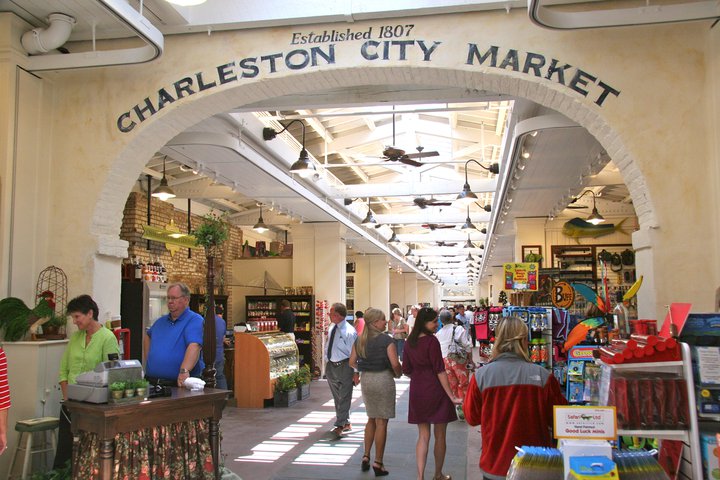
Why Charleston’s Market Is Still a Safe Bet Even in 2025
Charleston Market Report – In a year filled with economic caution and market slowdowns, Charleston continues to surprise analysts and investors alike. While many U.S. cities face declining home values, rising vacancy rates, or stagnant job growth, Charleston stands out as a beacon of stability. The reasons are clear: consistent population growth, strong local industries, and a real estate market that refuses to cool down. Charleston’s market is still a safe bet even in 2025, and the data backs it up.
Despite national headlines predicting market corrections and economic turbulence, Charleston’s steady rise tells a different story. This city isn’t simply surviving economic uncertainty it’s thriving in it.
One of the most compelling reasons Charleston remains a reliable investment is its population growth. People from across the country continue to move into the region, drawn by its coastal beauty, economic opportunities, and lifestyle. The Charleston metro area has grown faster than most other mid-sized U.S. cities, even as others experience plateauing or decline.
Young professionals are moving in, attracted by hybrid work opportunities and the expanding local tech scene. Retirees continue to favor Charleston for its charm, mild climate, and access to healthcare. Families are relocating here for safer neighborhoods and quality schools. More people mean greater demand for homes, rentals, retail space, and business services. That demand supports long-term stability and price growth in housing and commercial sectors.
Unlike overheated cities where prices have plummeted in recent quarters, Charleston’s real estate market has remained stable. Inventory levels are tight, which helps maintain home values. The region did experience a modest slowdown in price acceleration compared to the frenzy of 2021 and 2022, but it has avoided the sharp declines seen in speculative markets like Phoenix or Austin.
Residential homes continue to sell steadily, and rental demand is high. Investors in long-term rental properties are enjoying low vacancy rates and healthy returns, especially in fast-growing areas like Goose Creek, Summerville, and West Ashley. Vacation rental properties remain profitable in coastal and historic neighborhoods, supported by consistent tourism and business travel.
Read More: The One Financial Habit That’s Secretly Making You Poor
Charleston’s economic health plays a central role in market stability. This isn’t a one-industry city. While tourism remains a significant part of the local economy, other sectors have expanded dramatically. Aerospace, fueled by Boeing’s ongoing presence, continues to employ thousands. The growing tech corridor in downtown Charleston and Mount Pleasant is attracting startups and venture capital. Logistics and shipping thrive due to the Port of Charleston, which ranks among the most important on the East Coast. Healthcare and biotech are steadily growing as well, bolstered by institutions like MUSC.
This level of sector diversification means Charleston is less vulnerable to economic shocks in any single industry. It also means more jobs, more income security, and a larger base of potential homebuyers and renters.
Charleston’s local government and planning bodies are investing in infrastructure that supports long-term livability and property value. Transportation initiatives such as the Lowcountry Rapid Transit project are improving mobility between suburbs and downtown. Road expansions and port upgrades are already benefiting freight, business efficiency, and access. Urban planning efforts focused on smart growth are encouraging mixed-use development, walkable communities, and zoning reforms that make property more valuable.
Infrastructure spending almost always leads to increased economic activity and rising real estate values. Charleston is positioning itself for smart, sustained growth that appeals to both residential and commercial investors.
Even as mortgage rates remain high in 2025, Charleston’s rental market continues to perform well. Students, remote workers, medical professionals, and military personnel create constant rental demand. This demand keeps monthly yields strong and properties occupied. Short-term rentals, while more regulated than in the past, remain highly profitable in select areas.
With a steady stream of new residents, Charleston offers fewer investment risks than cities relying on volatile demand cycles. Investors can expect reliable income without needing to compete in saturated, overpriced markets.
Big investors aren’t backing away from Charleston in fact, the opposite is true. Institutional capital continues to flow into the region, targeting everything from apartment developments to light industrial sites. Local developers remain bullish, thanks to consistent permit approvals, business-friendly policies, and a strong consumer base.
The confidence of experienced investors is often a leading indicator of market strength. And in Charleston, that confidence hasn’t wavered. New construction, land acquisition, and business expansion all point toward continued momentum.
Charleston offers the rare combination of charm, growth, and economic diversity. It’s not just a beautiful place to live it’s a smart place to invest. The local market is backed by real fundamentals, not just hype. It has proven to be resistant to national downturns and continues to attract people, businesses, and capital in 2025.
If you’re looking for a market with long-term upside, strong rental returns, and a community committed to smart growth, Charleston remains one of the safest and smartest bets in the country
This website uses cookies.